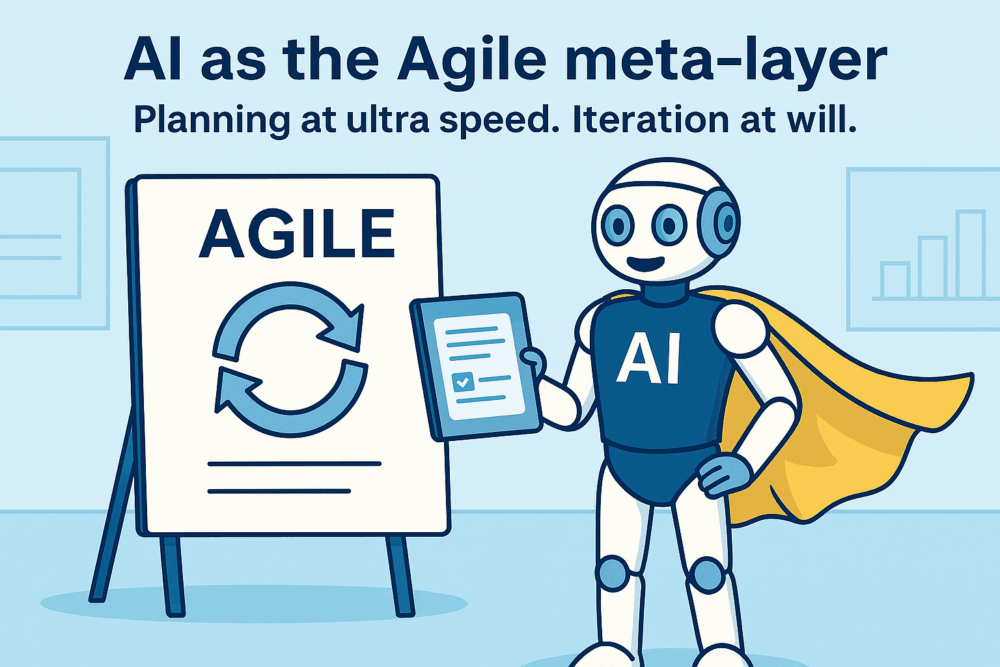Smarter use of data drives more resilient and cost-effective local public services
With productivity targets and budget challenges, it can be tempting to look towards AI and emerging technologies to provide the solution in local government. Local public service organisations must balance delivering a consistent and integrated citizen experience, with the age old need to do more with less.
Technology procurement certainly has its role to play in automating processes and improving efficiency in service delivery. But without an understanding of the underlying data landscape, or the value locked within it, organisations can’t achieve the full potential of digital innovation.
The Role of Data in Transforming Local Government
Local authorities gather a wealth of information every day. This includes important data points such as resident feedback, public service usage metrics, and resource management data. Trapped within siloed systems is the data to build comprehensive understanding of citizens and community requirements, and the information needed to improve public services. When local authorities can easily access their data and turn it into actionable insights, they can make more informed decisions that leads to better service delivery and efficient operations.
We all know by now that a data-driven approach is best practice in a world where the datasphere is growing at an exponential rate. But what does that mean in practice? How do we become ‘data-driven’? And how can local government organisations unlock the value in their data to deliver more cost-effective services that are responsive to citizens’ needs?

Become value-driven – not data-driven
Yes, I know I’ve just argued that data-driven is best practice. And I’m being semantically pedantic, because it’s true that we need to be using our data more strategically. But we don’t do that by turning our gaze upon our data landscape and asking – “how can I use this more strategically?” Instead, we need to come at this from the opposite direction; we need first to identify the outcomes we need to see that will help us achieve our business objectives.
This approach of working backwards from outcomes, uncovers the insights we need see, and the analysis or technology we need to develop those insights. Finally, this gives us the answer of exactly which data we need to use from across our ecosystem to underpin the outcomes and achieve our objectives.
A major advantage of working this way is that all activity is tied directly to delivering the value that we need most. The technology that needs to be procured can be directly linked to value delivered and ROI. Because we’re focusing only on the data we need to access, use, and make fit for purpose to meet a particular outcome, we can work with a data puddle rather than a data lake. This speeds up the time to value whilst keeping costs low.
This iterative approach to digital transformation allows local government organisations to adapt to changing conditions and demands to create more resilient and cost-effective local public services. Instead of engaging in a traditional digital transformation project that may take months or years to deliver, they can take a more agile approach to focus on one goal at a time to achieve immediate value.
For example, a local authority might have an ambition to implement support services for vulnerable citizens earlier, as it will reduce costs in other areas further down the line. By focusing on understanding their data around current service usage and integrating predictive analytics to understand early triggers, councils can foresee potential future need and can proactively plan and adapt their services to build resilience directly into their approach.
Tackling challenges collaboratively
A unified approach to service delivery can be established through secure and efficient data value exchange between departments, councils, and partners. Collaboration is essential in co-creating innovative services that align deeply with community needs.
When local authorities break down data silos, they make informed decisions that incorporate the collective insights of industry experts, council members, and residents. This ensures that services are tailored to the needs of the community and reflect comprehensive local input and expertise. Loca authorities can create effective services to address their communities’ unique challenges by enabling a collaborative and data-driven approach.
The Future of Local Public Services: Skilled Workforce and Smart Procurement
As local public services continue to evolve, having a skilled workforce proficient in managing and analysing data becomes increasingly important. It is essential to enhance the data literacy of local government employees so that they’re prepared for a future where data influences every aspect of service delivery. Additionally, smart procurement practices can act as catalysts for innovation. By tailoring procurement strategies to prioritise efficiency and innovation, local governments can better manage costs and foster a culture of continuous improvement. This, in turn, can transform public services into more effective and forward-thinking operations.
I’ve seen first-hand how a strategic approach to data can drastically transform public services. By analysing and managing data effectively, public services can gain valuable insights into their operations, identify areas for improvement, and make valuable, data-driven decisions. This approach can help public services optimise their resources, streamline processes, and improve the services they provide to their communities.
Summary – Impactful innovation that is outcome focused
Innovation in local public services goes beyond just adopting new technologies. It involves transforming service delivery to improve the value for both councils and users. By prioritising value-driven transformation, every technological integration and data utilisation should provide tangible benefits. This approach helps to streamline processes, reduce costs, and improve service delivery standards.
As a result, it contributes to a better citizen experience and increased citizen satisfaction. Focusing on value as a strategic priority ensures that innovations are technologically advanced and genuinely improve the quality of public services. Together, we can co-create a future where local public services are responsive and a step ahead in meeting the challenges of tomorrow.
Originally published as part of the TechUK Local Public Service Innovation week.











